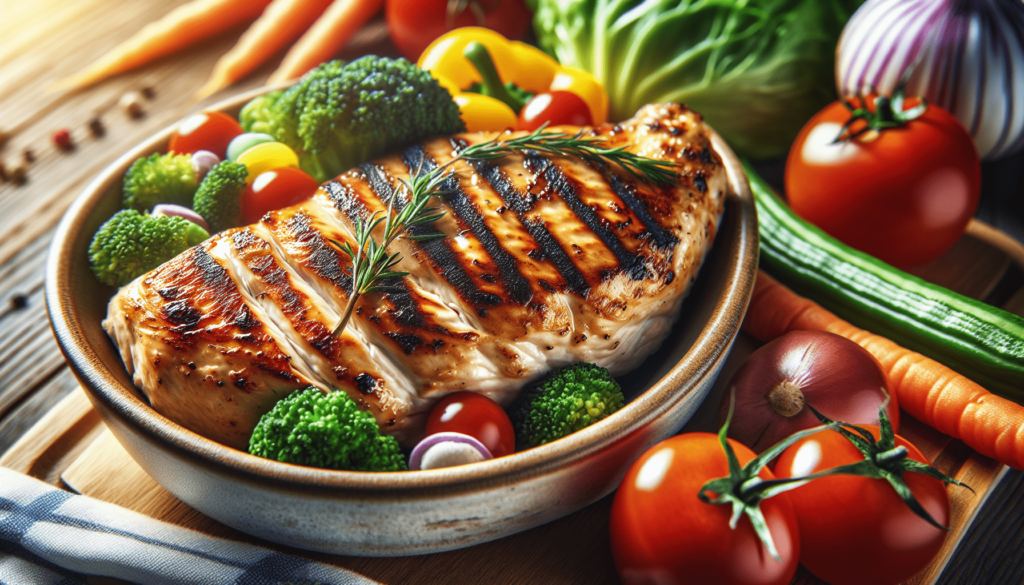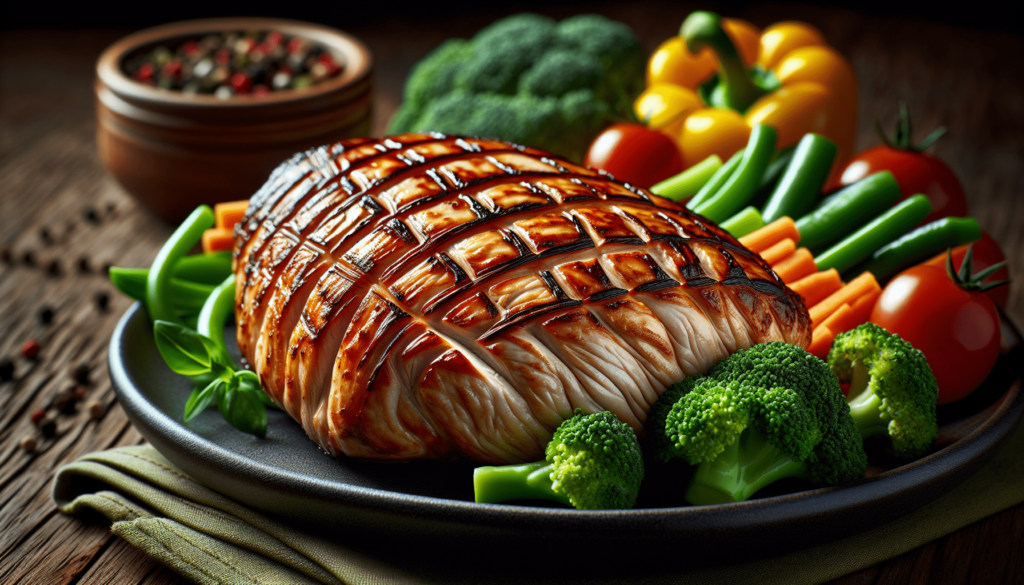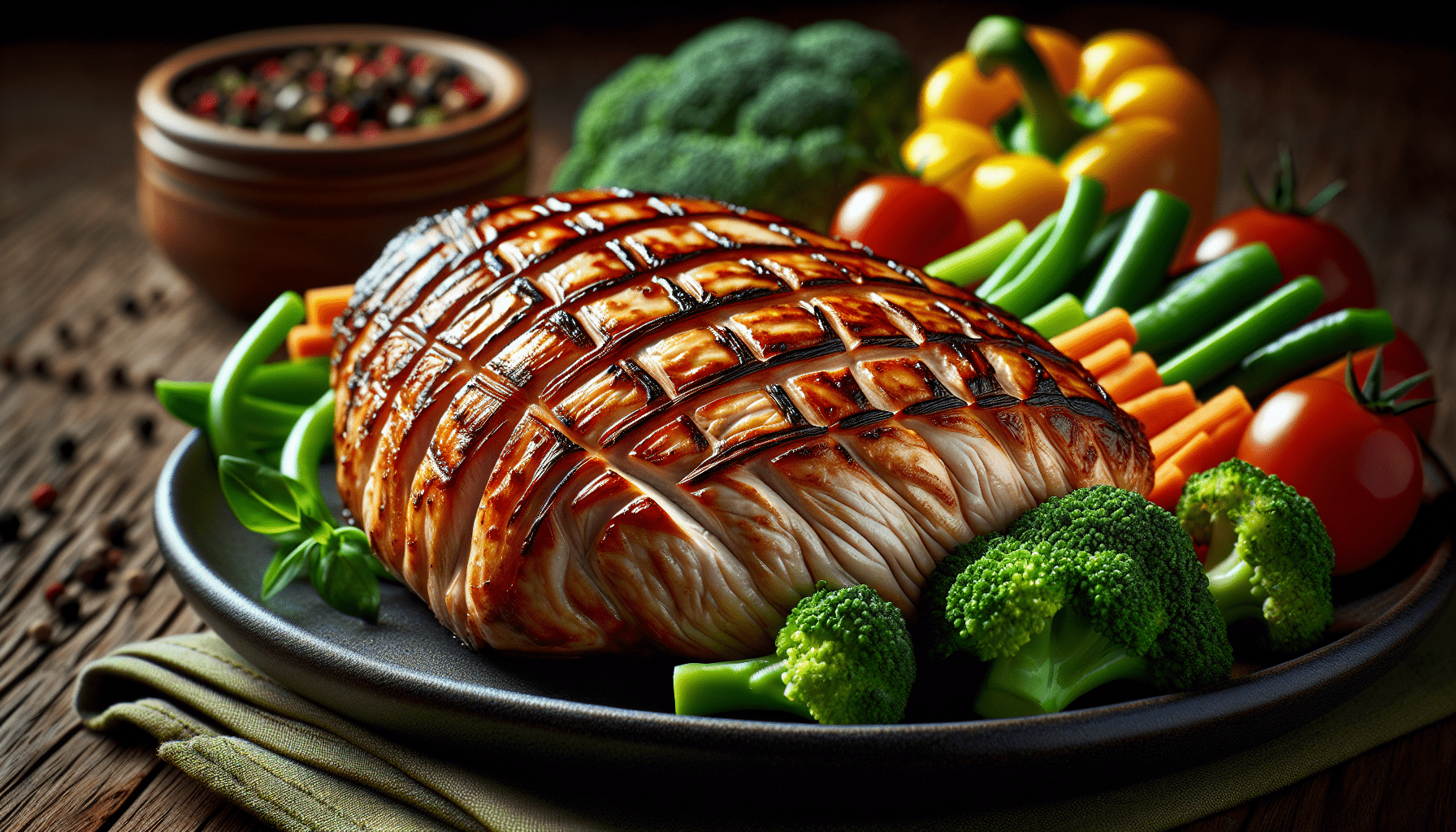Ever wondered why you wake up the day after your overly ambitious workout feeling like a piece of undercooked spaghetti? You’re sore, stiff, and regretting every moment of enthusiasm from the previous day. Fear not, my fitness friend, protein might just be the magical elixir you need. Or at least one of them—we’ll save the rest for another discussion involving foam rollers and the ritual sacrifice of your comfort.
What is Protein, Anyway?
Protein is not just that thing mom nagged you about eating more of at dinner. In scientific lingo, it’s a macromolecule consisting of amino acids bonded together in a neat little chain. Think of it as the linguistic equivalent of supercalifragilisticexpialidocious—only it has the power to rebuild muscle fibers rather than just impress your friends at karaoke night.
Why Does Protein Matter?
Without getting too “sciency” on you (or invoking flashbacks of your ninth-grade biology teacher), protein is vital for a plethora of functions in your body. From repairing tissues to making enzymes and hormones, it’s a multitasker that would put even the busiest of bees to shame.
Protein and Muscle Recovery: A Match Made in Heaven
The Science of Muscles
Strap in; it’s time for a brief anatomy lesson. Muscle fibers are like tiny, excitable pieces of string that contract whenever you decide to show off your dance moves or flex for the ‘gram. Whenever you exert these fibers beyond their regular demands—which, let’s be honest, probably happens more often when trying to impress a potential date—they undergo minor damage. To repair themselves and grow stronger, they need—you guessed it—protein.
Types of Muscle Damage
Believe it or not, muscle damage isn’t all bad. There are actually two types:
- Microtears: Little tears that occur during activities like weightlifting or intense cardio.
- Macrotears: Major tears, the kind that typically send you to the therapist sobbing, “I think I broke myself.”
The Heroic Role of Protein
When you consume protein, your body breaks it down into amino acids that rush to the aid of your beleaguered muscles like tiny, microscopic paramedics. Amino acids play a vital role in muscle protein synthesis (MPS), a somewhat fancy term for saying they help repair and build new muscle tissues.
Timing is Everything
Absorbing protein isn’t just a free-for-all buffet. Believe it or not, there’s actually an optimal time for munching on that protein-rich snack. According to research, consuming protein within a 30-minute to 2-hour window post-workout is like catching the midnight premiere of a blockbuster movie—it’s just better.
Here’s a handy table to guide your efforts:
| Timing | Effectiveness |
|---|---|
| Pre-Workout | Improves performance but not as critical for recovery |
| Immediate Post-Workout (30 min) | Maximal benefits for muscle repair |
| 1-2 Hours Post-Workout | Very effective but slightly less optimal |
| >2 Hours Post-Workout | Still beneficial but diminishing returns |

So, How Much Protein Do You Actually Need?
General Recommendations
Ah yes, the million-dollar question. According to the almighty gods at the Institute of Medicine, the average adult should aim for about 0.8 grams of protein per kilogram of body weight. However, if you’re lifting weights or engage in ultra-athletic activities like shaking your fist at bad drivers, you’ll need more.
Athletes and Gym-Goers
For you active types, recommendations generally hover around 1.2 to 2.2 grams of protein per kilogram of body weight.
Example Calculation:
- If you weigh 70 kg (approximately 154 lbs for the metric-challenged), your intake should be between 84 to 154 grams of protein daily.
Bringing math into this had to have hurt a little, didn’t it? Don’t worry, you’ll survive.
What About Supplementation?
Supplements can be your best buddy or your weird, oversharing gym acquaintance depending on how you use them. They can definitely help you hit those ambitious protein goals, but don’t go chugging protein shakes like they’re iced coffee on a Monday morning.
The Best Sources of Protein
Animal-Based Protein
NLT (No Large Theories) required here: animal sources provide complete proteins. Here’s a lineup of some go-to’s:
- Chicken Breast: A cleavage-less wonder of low-fat, high-protein loveliness.
- Eggs: The ultimate breakfast superstars. Egg whites are practically pure protein and you can do all sorts of things with them, like scramble, poach, boil, or feed them to your dog when you’re done pretending to be a Michelin star chef.
Plant-Based Protein
Before the carnivores groan, get this: you can absolutely be a muscle machine on plants! Check out these MVPs:
- Lentils: They don’t just sit on the shelf in boring cans; they’re partly responsible for some of the best soups ever.
- Chickpeas: Not just for hummus anymore (though, hummus is practically a food group in some circles).
A Quick Protein Comparison Table
| Food | Protein Content (per 100g) |
|---|---|
| Chicken Breast | 31g |
| Egg | 13g |
| Lentils | 9g |
| Chickpeas | 19g |

Combining Protein Sources
Remember how you could build a better Lego spaceship by combining different sets? That’s what combining protein sources is like. A mix of animal and plant proteins can give you a more balanced amino acid profile and keep your taste buds from entering Groundhog Day.
Myths and Misconceptions
More Protein = More Muscle
Pumping yourself full of protein doesn’t automatically chisel out muscles from where the squishy bits currently reside. You actually need to, you know, work out too. If you’re not pushing those weights, all you’re doing is making expensive pee (yes, I’m talking about the wasted protein).
Protein Will Make You Bulky
Unless you’re training like The Rock and consuming enough protein to feed a small country, you won’t wake up one morning bursting out of your t-shirts. It’s extraordinarily hard to gain that much muscle.
Protein and Overall Health
Skin and Hair
Your body loves protein so much it even sends some of it to strengthen your skin and hair. That glow? It’s basically the biological version of really good Instagram filters.
Weight Management
Including protein in your diet helps in weight management by making you feel full for longer—so you’re less likely to find yourself standing in front of the fridge at 2 AM, contemplating leftover pizza.
Practical Tips for Getting More Protein
Easy Swaps
- Swap Breakfast Cereal for Greek Yogurt: Because nothing says, “I’m serious about muscles” quite like a tub of Greek Yogurt.
- Add Beans to Your Salads: They add a protein punch and make you feel like you’re not just eating leaves.
Sneaky Add-Ins
- Protein Powder in Smoothies: It’ll blend right in and you can pretend you’re drinking a milkshake while secretly being a health guru.
Prepping Like a Pro
Having lean protein options handy in your fridge can be a life-saver. Cook up a batch of chicken breast or turkey burgers and keep them for easy access—future you will thank you.
Smart Snacking
Halfway through that workday and about ready to hulk smash through your workstation because you’re hungry? Keep some protein bars or nuts at your desk to stave off rampage-mode.
Hydration
Remember, protein metabolism requires a fair amount of water. So, if you’re ramping up the protein, you need to keep up the fluids too (water, not margaritas—despite what your heart tells you).
Cooking Methods
Try to avoid frying protein sources, not because I am a party pooper, but because your arteries will thank you. Grill, bake, or steam to keep things healthy without sacrificing flavor.
Conclusion
So, there you have it—proteins and muscles, an epic love story for the ages. By incorporating the right kinds and amounts of protein into your diet, along with sensible post-workout timing and some solid hydration, you’ll bounce back from your sweaty escapades better and stronger. Feeling less like undercooked spaghetti and more like the awe-inspiring human you were meant to be.
Remember, muscles aren’t just about lifting heavier weights or out-flexing your workout buddy. It’s about taking care of your body so it can continue to take care of you. And, let’s be honest, perhaps also about having an excuse to eat more delicious food rather than resorting to limp salad leaves.
Happy Repairing!
